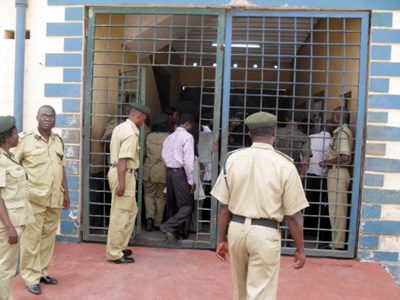The Nigerian Bar Association has pledged to collaborate with the Nigerian Correctional Service to identify and provide legal representation to inmates without access to counsel.
The NBA president, Afam Osigwe, made this statement on Friday after visiting the Medium Security Custodial Centre in Kuje, Abuja.
He also said that the NBA would make grants available to persons freed from correctional centres to encourage social integration and self-empowerment.
“I have taken a decision to make a proposal during our National Executive Council meeting in Benin next week for the NBA to donate a lonesome amount into a fund.
“The NBA will be giving a certain amount as a grant for free to persons who are being released from prison to help them start off life or start up a business in life. One of the problems people face is that when they leave correctional centres, they are going into a society not prepared or having any money. As soon as we get that approval, we will put that fund in place,” he stated.
Mr Osigwe added that the association will also make a direct donation to the NCoS for assistance with the skill acquisition and educational programmes going on in correctional centres.
“I have seen the scale of acquisition work and educational programmes going on here; the NBA will also be putting in money to aid them to acquire materials. I am impressed. This changed my perception and my understanding of how correctional centres work: the neatness of the environment, the humane nature under which people are kept – it wowed me, and I am glad I came,” he said.
He said that the profound humanitarian decision was born out of the need to ensure ex-convicts live a reformed life, knowing that society cares.
“All of us have a duty to ensure that whichever way it goes, when they return to society, if they ever do, that they will be reintegrated and find something to do so that whatever reason brought them here will not bring them back after they are released,” he said.
The president opined that the level of reception ex-convicts received from society could help reduce recidivism.
“It is a duty we owe to them not to remind them of their past nor discriminate against them either in job opportunities or even in allowing them to live a normal life when they return to society. People say that the man who made the pencil also made the eraser. People may make mistakes in their lives, but they should be able to move on without being held back by their past,” he said.
He prayed that the inmates would find peace in their hearts and return to society by living exemplary lives.
(NAN)






